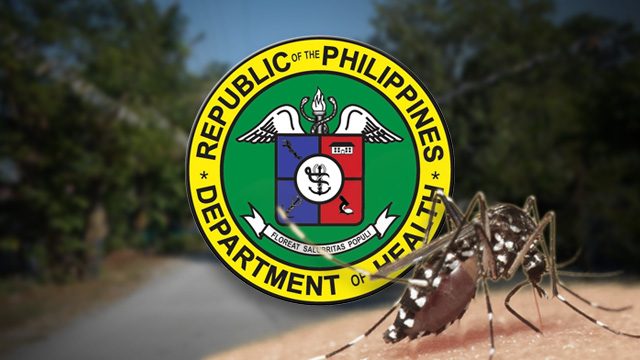SUMMARY
This is AI generated summarization, which may have errors. For context, always refer to the full article.

MANILA, Philippines (UPDATED) – The Philippines is prepared for a “worst-case scenario” following warnings that an anti-dengue vaccine administered to thousands of children may worsen the disease in some cases, a health official said Saturday, December 2.
Department of Health spokesman Eric Tayag said the country had already taken precautions against potential mishaps when it became the first country to use the landmark vaccine in 2016. (READ: Vaccinated Filipino youth now at risk of getting severe dengue)
The developer of the world’s first vaccine for the potentially deadly virus, French pharmaceutical giant Sanofi, revealed earlier this week that it could trigger more severe symptoms in people who had not been previously infected with dengue.
More than 733,000 children have already received Dengvaxia, raising fears that many could develop the harsher form of the disease.
“The Department of Health is prepared for a worst-case scenario,” Tayag told ABS-CBN, a day after the agency announced it was suspending its mass vaccination program.
Tayag said the government had been careful to only implement the scheme in areas where dengue was already widespread and had only given it to children aged 9 or older.
“They are being followed up for adverse effects following immunization,” he said.
He added that the department, which had previously said there were no reported cases of worsened infection among those who received the vaccine, was also checking hospital records for severe cases of dengue. (READ: TIMELINE: Dengue immunization program for public school students)
Sanofi had said such acute dengue cases would not become apparent until about five years after vaccination, Tayag added.
Fast answers
Meanwhile, Vice President Leni Robredo on Sunday, December 3, said questions surrounding the government’s purchase of P3.5-billion Dengvaxia vaccine must be resolved soon.
“Kailangang masusing pag-aralan at panagutin iyong mga kailangang managot,” Robredo in her weekly radio show.
“Kaya tingin ko, as soon as possible, kailangang magkaroon ito ng kasagutan—ano iyong dapat gawin—at iyong mga nagkasala, kailangang panagutin,” she added.
The Department of Health earlier announced the suspension of its dengue immunization program, also ordering the close observation of those who had received the vaccination.
The developer initially said its Dengvaxia vaccine was “critical” in the fight against dengue, the world’s most common mosquito-borne virus.
On Wednesday, Sanofi said that a new study has confirmed Dengvaxia’s benefits for “those who had prior infection” with the potentially-lethal disease.
“For those not previously infected by dengue virus, however, the analysis found that in the longer term, more cases of severe disease could occur following vaccination upon a subsequent dengue infection,” Sanofi said. (READ: Senate eyes probe into DOH anti-dengue vaccine in January)
More than 1,000 people in the Philippines died from dengue last year, out of more than 211,000 suspected cases, according to the government.– Rappler.com
Add a comment
How does this make you feel?
There are no comments yet. Add your comment to start the conversation.